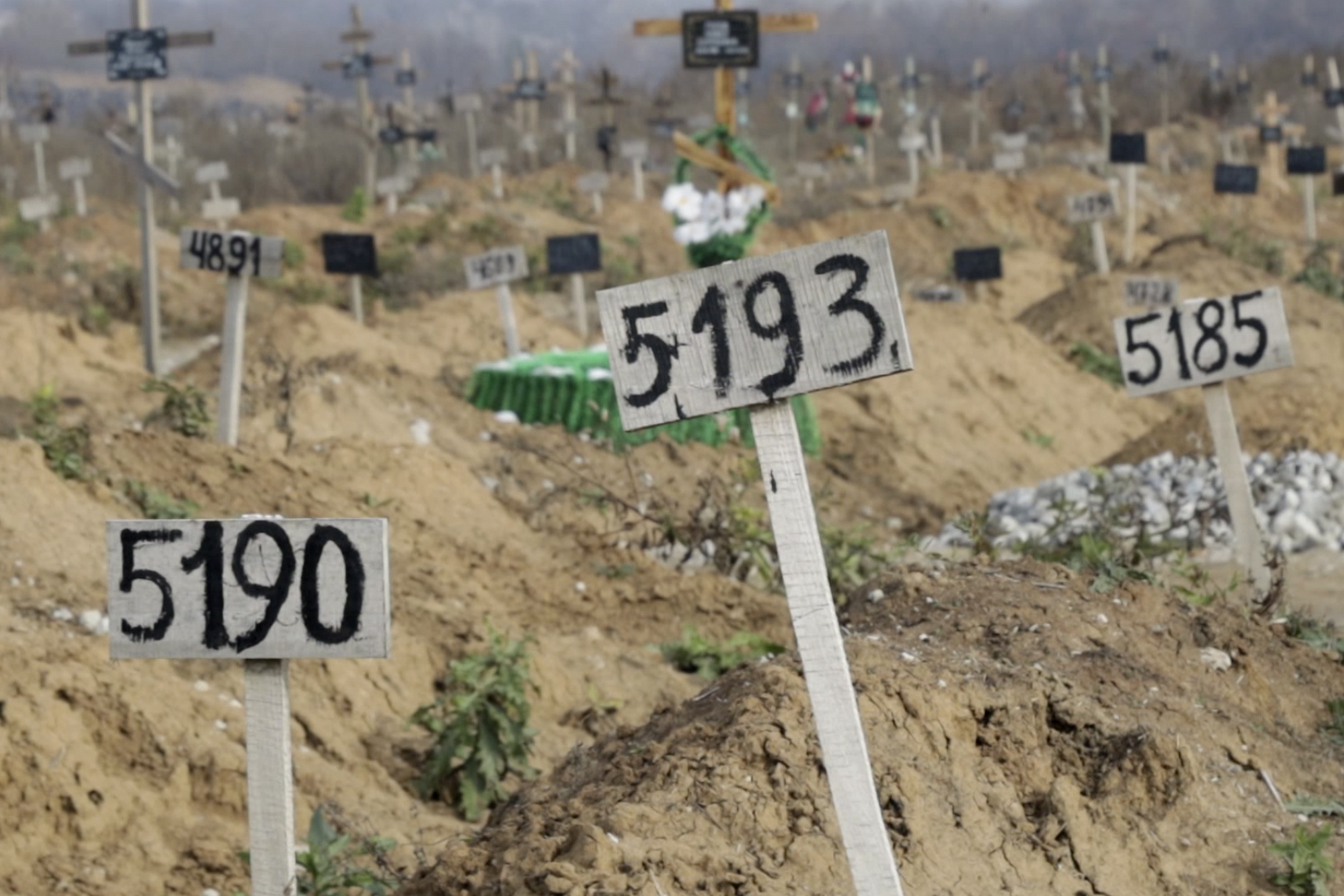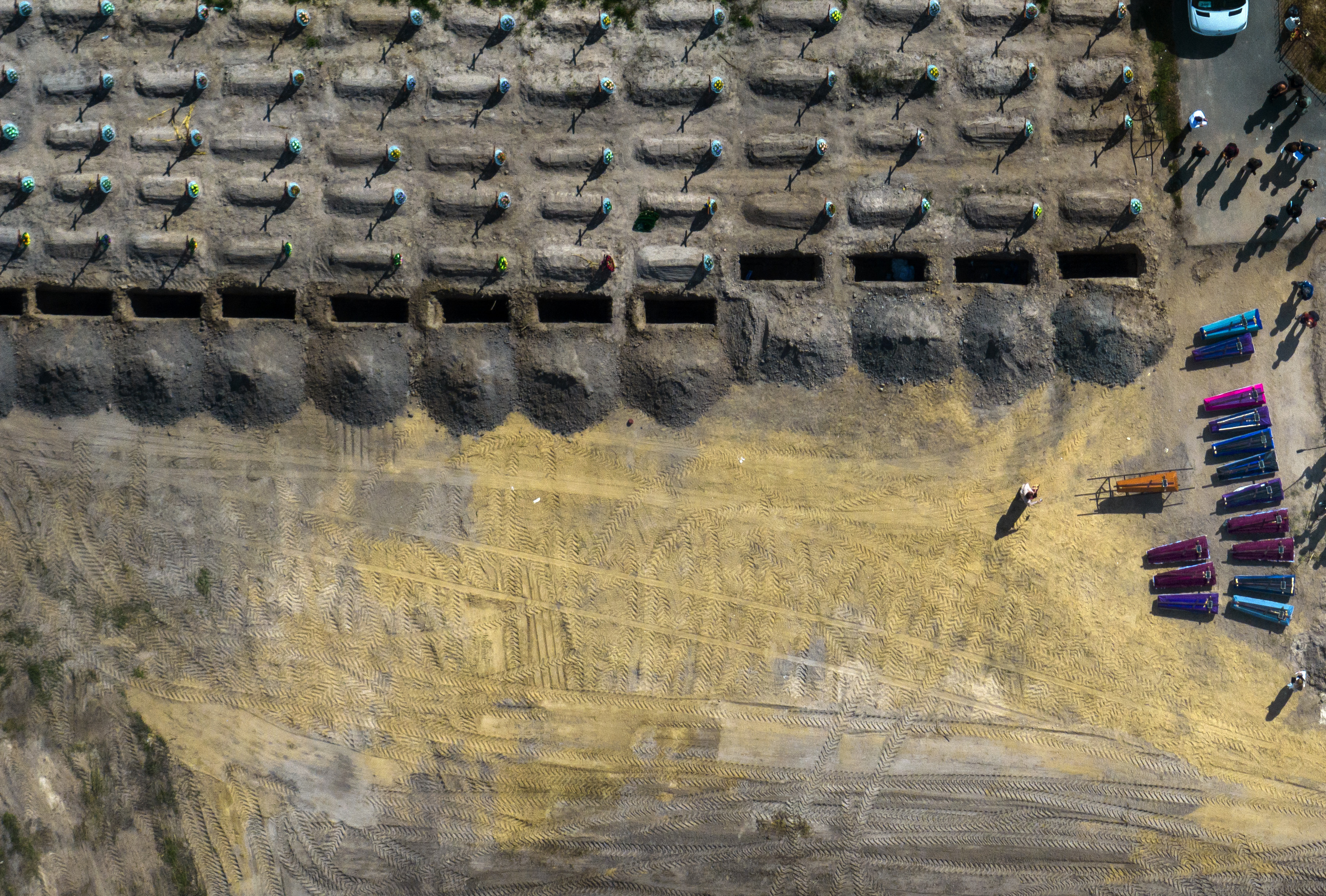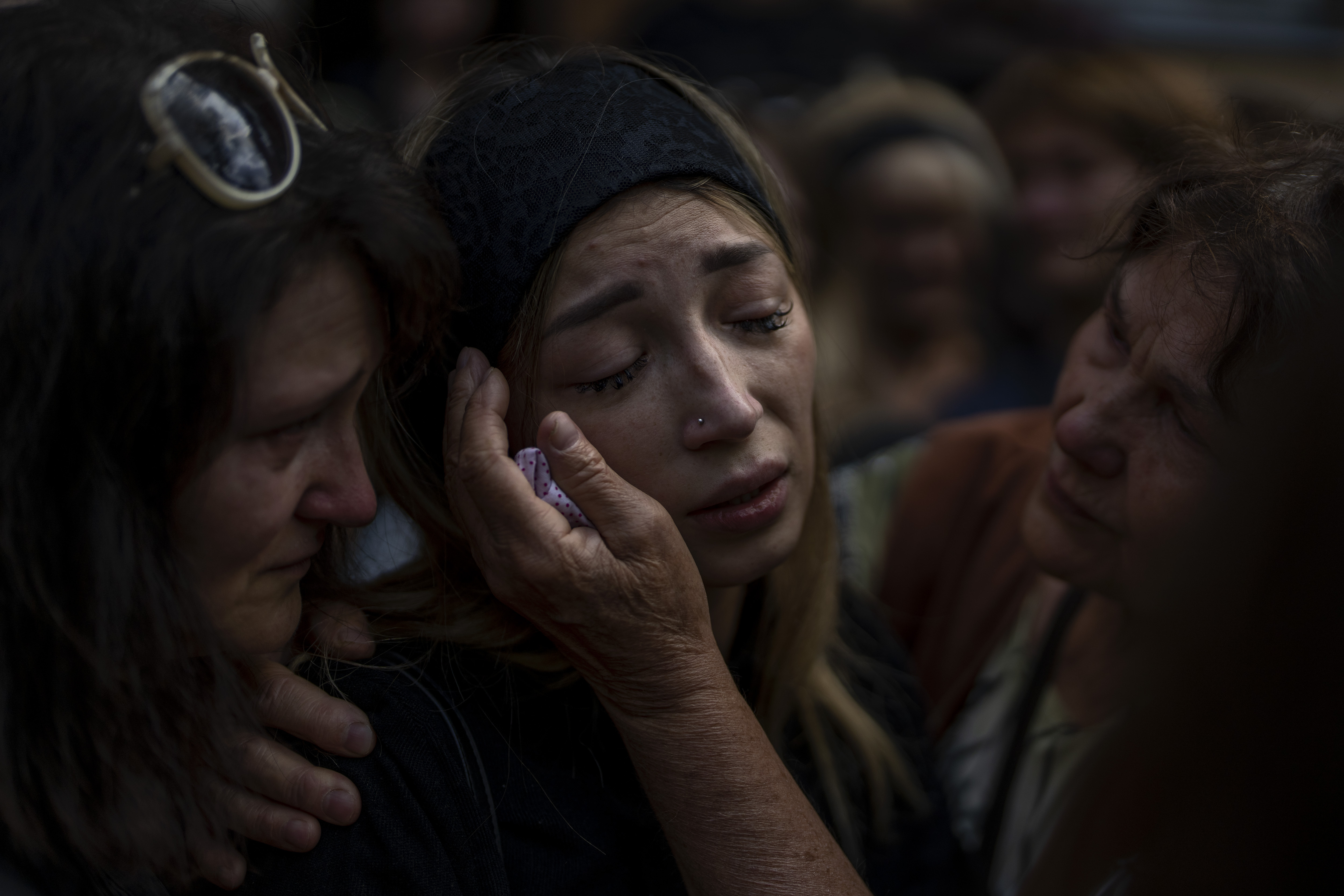
When, last April, horrific images and videos of dozens of torture-marked corpses scattered through the streets of Bucha or stacked in mass graves for the first time and despite Russia denying any responsibility for the massacre, the international community spoke of war crimes.
A few days ago, US officials brought the terminology back into the public debate, accusing Russia of “crimes against humanity.”
“In the case of Russia’s actions in Ukraine, we have checked the evidence, we know the legal protocols, and there is no doubt: these are crimes against humanity,” said US Vice President Kamala Harris from the Munich Security Conference hall.
“Russian forces launched large-scale and systematic attacks against the civilian population – heinous acts of murder, torture, rape and deportation,” he added.
At the same time, the head of US diplomacy, Anthony Blinken, issued a statement last Saturday in which he said that “Russian forces and other Russian officials have committed crimes against humanity in the war in Ukraine.”
Nearly a year ago, the United States charged Russian troops with war crimes, and Ukrainian courts have already convicted more than two dozen Russians, mostly low-ranking soldiers, for war crimes.
But what constitutes a war crime, what a crime against humanity and what genocide? Which international bodies or organizations decide whether an act of war falls under these categories? And how are they documented?
War crimes
There are special international protocols on war crimes, which should not be confused with crimes against humanity.
War crimes are defined as serious violations of humanitarian law within one conflict. The term, established by the Rome Statute of the International Criminal Court, is derived from the Geneva Conventions of 1949 and is based on the doctrine that individuals can be held responsible for the actions of a state or its armed forces.
The UN Genocide Prevention Agency separates war crimes from genocide and crimes against humanity. War crimes are defined as acts committed during an internal conflict or war between two states.
A war crime is the intentional killing or infliction of pain, mass destruction, confiscation of property, deliberate targeting of civilians.
On the other hand, genocide and crimes against humanity can be committed in peacetime or when the army unilaterally attacks a group of unarmed people.

Most of the graves in the cemetery in Mariupoli do not have a name and a photo, but a number – Source: AP Photo
Crimes against humanity
The first trials for crimes against humanity took place at the Nuremberg trials, where former Nazi officials sat in the dock.
The Rome Statute of the International Criminal Court defines crimes against humanity as any acts, including murder, torture, rape, enslavement and deportation, “committed in the context of widespread or systematic attacks against a civilian population”.us, with the knowledge of the attackers.”
According to David Bosco, professor of international studies at Indiana University, it is critical to prove that the violations are “widespread or systematic.” Prosecutors must prove that the perpetrators knew they were attacking civilians as part of a plan or strategy.
Charges of crimes against humanity are considered “the highest level because it is something that was based on a policy, a plan or a systematic campaign,” explains Bosco, “which points to decisions from the highest levels of the Russian hierarchy.”
Because of their systematic nature, crimes against humanity are more difficult to prove than war crimes, though easier than genocide.
Genocide
Genocide is regarded by most as the most serious crime against humanity.
It is defined as the mass extermination of people of a certain group – nationality, race or religious affiliation.

However, this definition hides a complex set of legal concepts about what exactly constitutes genocide and when one can be convicted for it.
Some analysts argue that this definition is narrow, such that none of the massacres committed since the treaty’s passage fall under it.
“Genocide differs from all other crimes by the motive behind it. Genocide is a crime on a different scale than other crimes against humanity and indicates the intent to completely destroy a select group,” explains former General Secretary of Médecins Sans Frontières (MSF) Alan Deteks in Rwanda and Genocide in the 20th Century.
The most striking example of genocide is the massacre of some 800,000 people in Rwanda in 1994, which subsequently led to persecution.
Has Russia committed similar crimes in Ukraine?
The US government thinks so. In a statement last Saturday, the US Secretary of State said the US had conducted a “thorough analysis of the crimes committed and the law,” finding crimes against humanity by Russian officials and soldiers. He himself spoke ofkillings we are talking about the execution of Ukrainian men, women and children. Torture civilians captured through beatings, electric shock and virtual executions. rapes And exile hundreds of thousands of Ukrainian citizens in Russia, including children forcibly separated from their parents.”

Anastasia Orimenko, 26, mourns for her husband, who was killed in action in Donetsk. Source: AP Photo/Emilio Morenatti.
“These actions are not accidental or spontaneous. They took place against the backdrop of large-scale and systematic attacks by the Kremlin on the civilian population,” he added.
But both Ukrainian President Volodymyr Zelensky and European leaders have previously accused Russia of crimes against humanity. The International Criminal Court launched an investigation last March to investigate alleged war crimes, crimes against humanity or genocide committed in Ukraine from late 2013 onwards.
Can accusations lead to prosecution?
Not immediately, right now. The US government does not have the legal authority to prosecute crimes against humanity in national courts, a loophole in the US justice system that Beth Van Schaak, US Ambassador for Global Criminal Justice, has called on Congress to close.
However, serious statements made last Saturday point to the commitment of the United States, “a country that has historically been reluctant to cooperate with the mechanisms of international justice for fear of being held accountable for its own actions in foreign wars,” the Washington Post comments. ensure justice for violations of international law in Ukraine.
“Especially on the eve of the first anniversary of the invasion, it helps to send a message to the world – and especially to the victims— that the American government has not forgotten what happened,” notes Rebecca Hamilton, professor of law, of the symbolism of the statements at the moment.
The International Criminal Court (ICC) is the obvious body to prosecute those accused of crimes against humanity, explains Bosco, adding that the main disadvantage of this particular court is that cannot judge persons in absentia – therefore, the highest hierarchy of the Russian political and military leadership can avoid persecution if they stay in Russia or flee to friendly countries.
Ukrainian courts can prosecute for crimes against humanity – having already judged Russians in absentia. However, under international law, they have no legal authority to try the Russian president or other high-ranking officials, Hamilton notes.
On the other hand, the International Court of Justice (known in Greece as the Hague Court) resolves disputes between states, but cannot prosecute individuals.
Source: Washington Post/Deutsche Welle/BBC/Time.
Source: Kathimerini
Anna White is a journalist at 247 News Reel, where she writes on world news and current events. She is known for her insightful analysis and compelling storytelling. Anna’s articles have been widely read and shared, earning her a reputation as a talented and respected journalist. She delivers in-depth and accurate understanding of the world’s most pressing issues.